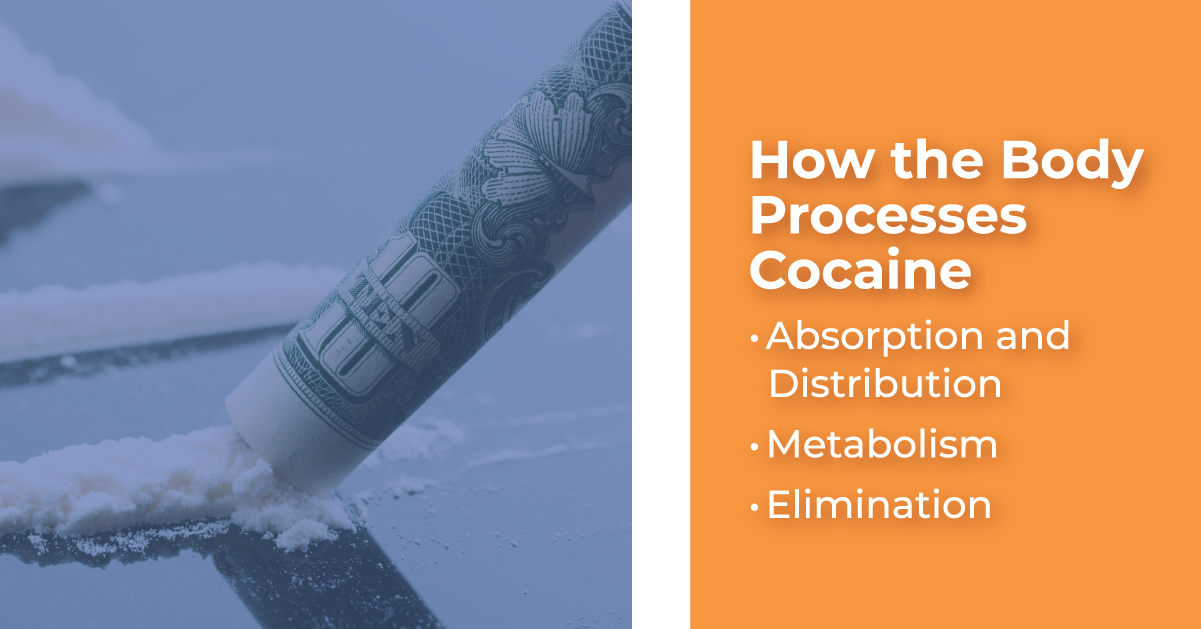How Long Cocaine Lasts In Your System
Cocaine is a powerful stimulant drug that has a unique impact on the human body. It is important to understand how long its effects last for various reasons. After taking cocaine, its effects reach their peak within 15 to 30 minutes, causing increased alertness and feelings of euphoria.
After consuming the drug, its effects last for 15-30 minutes, while traces of it remain in the bloodstream for about two days. Awareness of cocaine’s presence in the body is essential for informed decision-making and addressing potential health concerns.
This article helps us understand how long cocaine stays in our system.
Key Takeaways
Cocaine is a powerful stimulant that leaves a noticeable impact on the body. Here’s what you need to know:
- Cocaine’s immediate effects peak within 15-30 minutes, inducing intense euphoria and heightened alertness.
- While the high is fleeting, traces of cocaine can persist in the bloodstream for up to two days, impacting overall duration.
- Cocaine metabolites are detectable in urine for up to three days, but hair follicle tests provide a detection window of approximately 90 days.
The Recovery Team provides comprehensive support for individuals to overcome addiction and achieve lasting recovery. Contact us at (800) 817-1247 for further assistance.
Understanding Cocaine
Cocaine is a mighty stimulant drug derived from the leaves of the coca plant, born in South America. Its most common form is a white, crystalline powder, often mixed with other substances. People typically use cocaine by inhaling it through the nose (snorting) or injecting it into the bloodstream.
Cocaine evokes the central nervous system, leading to intense feelings of euphoria, increased energy, and alertness. However, these effects are short-lived, lasting only 15-30 minutes.
Prolonged cocaine use can have serious health consequences, including heart problems, nervous system issues, and mental health challenges. Cocaine’s addictive nature can lead to a cycle of craving and compulsive use, impacting various aspects of an individual’s life.
Additionally, the drug’s legality and associated risks make its use a public health concern in the United States. It is essential to have a basic understanding of cocaine to make informed decisions and promote a safer, healthier society.
How the Body Processes Cocaine
Upon ingestion, cocaine swiftly enters the bloodstream, triggering rapid effects on the central nervous system. Absorbed through snorting or injection, it journeys through the body, with the liver metabolizing it into various compounds. This learning can prove to be valuable in discovering potential programs for those who struggle with addiction.
Absorption and Distribution
After ingestion, usually through snorting or injection, cocaine rapidly joins the bloodstream and is distributed throughout the body. This quick absorption leads to a rapid onset of effects, typically within minutes. The drug’s ability to transit the blood-brain barrier contributes to its intense impact on the central nervous system, resulting in heightened energy and euphoria.
Metabolism
Once in the bloodstream, the liver plays a crucial role in metabolizing cocaine. Enzymes break down the drug into various metabolites, including benzoylecgonine, ecgonine methyl ester, and norcocaine. These metabolites are less vibrant than the parent compound, marking the beginning of the body’s process to eliminate the drug.
Elimination
Elimination primarily occurs through the kidneys, as the water-soluble metabolites are filtered into the urine. The process involves the kidneys actively removing these substances from the blood, eventually expelling them from the body. While the immediate effects of cocaine may last only 15-30 minutes, its elimination is a more gradual process, with metabolites detectable in urine for up to three days. Understanding this lifecycle is vital for assessing potential health risks and implementing appropriate interventions.
Duration in the System
The effects of cocaine are fleeting, lasting only 15-30 minutes, but the drug’s presence in the body extends beyond. While the initial high is short-lived, the metabolites can persist in the system for elongate periods, influencing overall duration.
Several factors affect how long cocaine stays in the body. Individual variations such as metabolism, liver function, and overall health play a role. Frequency, quantity, and method of ingestion can impact duration. Chronic use tends to prolong the drug’s presence, increasing the likelihood of detection.
Cocaine Detection Duration
Detection methods vary, but urine tests can identify cocaine metabolites for up to three days after use. Hair follicle tests offer a more extended window, detecting drug exposure for approximately 90 days. Understanding these detection periods is essential for legal and health-related contexts, guiding decisions regarding testing and intervention.
Factors Affecting Retention Time
The duration cocaine stays in the body, known as retention time, is influenced by several factors. It is essential to understand these variables to grasp the detection periods of drug tests.
Strength and Amount
The strength and quantity of cocaine used significantly impact retention time. Higher purity levels and larger doses can extend the drug’s presence in the body, increasing the likelihood of detection during testing.
Frequency of Use
The more frequently cocaine is used, the longer it tends to stay in the body. Chronic use builds up a reservoir of the drug and its metabolites, prolonging the overall retention time and affecting the window of detection.
Individual Metabolic Rate
Each person’s metabolic rate, the speed at which the body processes substances, differs. Faster metabolisms can lead to quicker elimination of cocaine and its metabolites, reducing the overall retention time.
Body Mass and Health
Individuals with higher body mass may retain cocaine for a longer duration due to the drug’s storage in fatty tissues. Additionally, one’s overall health can impact metabolism, potentially influencing how quickly the body eliminates the drug.
It is vital to comprehend these factors to interpret drug test results accurately. The interplay of purity, quantity, frequency of use, metabolic rate, body mass, and health collectively determines how long cocaine remains detectable in an individual’s system.
Long-Term Effects
Understanding the implications of cocaine use on both physical and psychological health is vital. Regular monitoring through various drug tests, including blood, saliva, and hair tests, can provide insights into the presence of cocaine.
Physical Health
Prolonged consumption of cocaine can result in serious physical health problems. It elevates blood pressure, increasing the risk of high blood pressure-related issues. The drug’s impact on the cardiovascular system may result in heart attacks and other cardiovascular complications. Liver damage can also occur, affecting overall health.
Even small amounts of cocaine over an extended period can cause significant harm, emphasizing the importance of understanding its lasting effects on physical well-being.
Psychological Effects
Long-term cocaine use adversely affects mental health, causing cognitive impairments and psychological distress. Chronic use can lead to addiction, characterized by a compulsive need for the drug. This highly addictive stimulant induces changes in the brain’s reward system, contributing to cocaine use disorder. Psychological withdrawal symptoms, such as cravings and mood swings, often accompany attempts to quit.
Seeking professional help, including treatment facilities and a comprehensive treatment plan, is crucial for addressing the psychological aspects of long-term cocaine abuse. The National Survey on Drug Use and Health highlights the importance of awareness, treatment, and support for individuals dealing with substance use disorders, including cocaine abuse.
Liberate Yourself From Cocaine Addiction
The Recovery Team helps those who struggle with cocaine addiction by providing customized treatment solutions. We offer residential and outpatient services to provide a supportive, holistic healing environment.
We offer a dual diagnosis program that addresses underlying issues, providing comprehensive care. Our experienced professionals lead individual therapy sessions to create personalized paths to recovery.
Remember, you’re just one step away from hope, healing, and lasting recovery. Contact us at (800) 817-1247 today to begin your journey.






